|
What is an expert? Throughout my career the functional definition has been, someone I trust who knows more than me. Perhaps that is a fair definition for a mentor, someone who can help you see and reach beyond your current skills and abilities, but this likely isn't a sufficient definition for a subject matter expert. If you are interested in this topic, I think you will enjoy Episode 94 of The DYOJO Podcast as well as some of the quotes included in this blog post. An expert is a man who has made all the mistakes which can be made, in a narrow field. I think there is a humility factor in becoming someone whom others perceive to be an expert. I find that the things that I know well are those things that I learned by failing. It is comforting to know that there are others who view the world in this way as well. If you want to become an expert, the first step is to be willing to fail. The fear of failure is often more dangerous than failure itself. When we fail we can learn and try again. An expert is one who knows more and more about less and less. In order to excel in one area, do you have to prioritize your time and effort? I have heard that the difference between good and great is a small gap, but the difference between good, great, and elite is expansive. John Wooden coached UCLA basketball from 1948 to 1975, during that time his teams competed in a record 38 consecutive NCAA tournament games. Each offseason coach Wooden would study an aspect of the game to help keep himself sharp and hungry to improve. He said, "It's what you learn after you know it all that counts." Expertise is a combination of training, education, and experience. Aside from being a shameless plug to listen to my podcast so that you can hear these words from Bob's mustachioed lips yourself, there is great wisdom in his mantra. Mr. Blochinger has developed his career over many years of being a contractor, flooring installer, and now third-party consultant and expert witness, by applying the principles he shares. Bob has sought out training with practitioners, industry education and certification, and learning from his own experiences as well as that of others in his network. An expert is somebody who is more than 50 miles from home, has no responsibility for implementing the advice he gives, and shows slides. I can remember the first time a company I worked for hired an outside consultant to assist them in growing their business. If memory serves me correctly, I believe Edwin Meese's definition fit the representatives of that business consulting firm perfectly. As we discuss on my podcast, I think this is why the most helpful experts are those who have relevant experience in applying the principles that they are coaching their clients with. An expert is someone who has succeeded in making decisions and judgements simpler through knowing what to pay attention to and what to ignore. Another great mind, author and consultant Lex Sisney, shared a simple principle that has stuck with me. Whenever you are working to improve something, in yourself or your team, ask what must I STOP doing and what must I START doing to achieve the IDEAL. If we combine the concepts in this blog, the roadmap to expertise incudes filtering those things that are (even if only for the moment) distractions so that you can narrow your focus on what is important.
0 Comments
What is The DYOJO?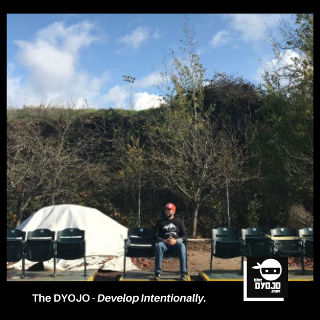 The DYOJO is The Do Your Job Dojo. A dojo is a space dedicated to learning and practicing martial arts. In business teamwork is essential to an organization’s ability to perform at the peak of its capacity. Teamwork must be grounded in trust. the foundation for trust to be built among multiple employees who will be empowered to work with each other, is laid by team members who consistently do their job. In this equation, those in leadership can help this process evolve by clarifying roles and responsibilities for all employees. Personal and Professional DevelopmentIn the original Karate Kid movie, Sensi (teacher/master) John Kreese states the distinctives of the Cobra Kai Dojo:
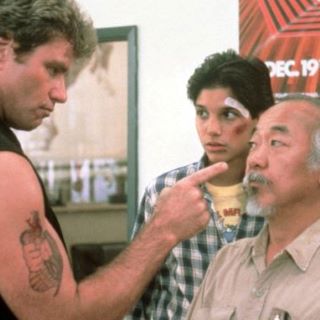 From the example of Karate Kid, we see the difference in the people, process and production of those trained by Sensi Kreese and karate master Mr. Miyagi. By all appearances, the process Mr. Miyagi utilizes for skills training would not produce a championship level fighter and his young apprentice Danny frequently questions his progress. The climax of the movie reveals that the skills and heart of young Danny has been mentored and developed to persevere through rise to the challenge in the face of an opponent is superior by most metrics. Mentorship and Coaching for Achieving Goals.When you commit to studying a martial art, you must find a mentor who you believe will help train you to master the craft you have chose and you must remain engaged in your skills development. The same is true in business. It is your job to pursue personal and professional development so that you can reach your potential. As you grow as a leader, you have a responsibility to repeat the process and help others to achieve their goals. The DYOJO will help you to develop the will, the skill and the chill to succeed. Customized Business Coaching Strategies.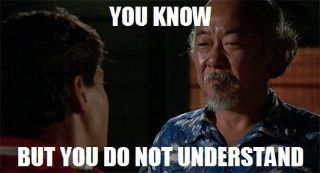 We take the time to listen to your vision, values and goals so that we can assist you to build a strategy for achieving success. You are the hero of your story and our value proposition is to come alongside you to optimize your efforts. The DYOJO provides business coaching services and leadership development in person, online and via remote group training. In the DYOJO we are committed to these core concepts and resources for development:
What services do The DYOJO provide?For growth minded employees in need of direction for continuing their career development:
For new managers who need to elevate their education and training for leadership:
For existing managers looking for tools to help them engage the modern workforce:
For organizations desiring to provide leadership development resources:
Why was The DYOJO Started?The DYOJO helps leaders to intentionally develop their vision and values so that they can build teams that are clear, consistent as well as accountable. We work to help you bridge the gap between where you are and where you want to be as an organization. Through business coaching and leadership development, The DYOJO helps teams to increase their performance in the four key areas of sustainable success - people, process, production and progress. How can The DYOJO help?
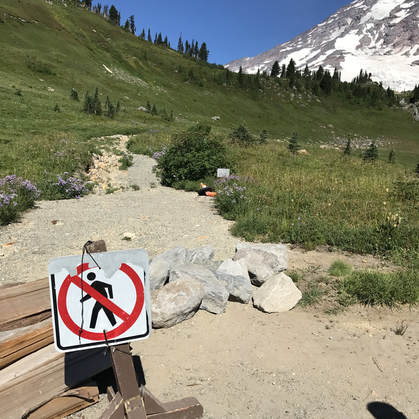 You have them on board (recruitment), now it's time to on-board (development) You have them on board (recruitment), now it's time to on-board (development) In the progression of building a team, by the time you reach the on-boarding phase you have done much of the initial heavy lifting. Where in years past candidates would seek out your organization looking for an opportunity for employment, the tables have now turned and most companies are actively engaging in proactive recruiting measures. According to Fit Small Business, a 2017 study from Hire Well noted that, “52% of hiring managers claim that passive candidate recruitment has been less effective.” When your corporate and/or local listing are competing not only with a void in the labor market of available candidates but also the likes of professional recruiters on sites such as LinkedIn, your traditional methods of recruitment are going to lose their effectiveness. Employers that are looking to add talent to their organization are going to have to adopt the posture of hunters who understand their target and are adapting to the surroundings which would include a shortage of prey. One quick tip is to expedite the screen process through simple means such as texting candidates as introduced in our article, Text For Hire. If you have new employees to on-board into your organization than you have at least been able to chip away and some fragment of the quantity issue. You have increased your headcount, even if that is only one employee, which is something many companies are struggling to do. This deserves at least a golf clap. Now we want to begin the quality aspect of team additions, we want to create an entry experience that excites them to engage in the organization’s mission. In their book, Insuring Tomorrow, Tony Canas and Carly Burnham work to bridge many of the gaps between organizations and millennial employees. Tony and Carly have some practical tips for the first day and orientation throughout their book in addition to reversing a myth about millennials and criticism, “They’re absolutely comfortable with getting constructive feedback, but worry much more if they get no feedback, which is what is truly demotivating for a Millennial (p 58).” When on-boarding new team members, those in positions of leadership should correct bad habits and details early. As the Hall of Fame UCLA basketball coach John Wooden states, “A coach is someone who can give correction without creating resentment.” If your hiring process has enabled you to attract candidates that connect with your organizational mission and values then this tone of coaching should already have been outlined. The right additions want to know how to do things the right way and how to excel in their roles within the team. Honest feedback is good feedback when progressing towards a goal. If there is push back on the feedback given, leaders will need to determine whether there was a miscommunication, an inability or an unwillingness as outlined in our article Conflict. Each response requires a different approach and will result in a different outcome. All of our processes should be geared towards creating clarity as a lack of clarity is the prime catalyst for the corrosive effects of confusion and explosive tension of negative conflict. As we establish clarity in our vision, our values and our systems then we can develop consistency in our processes as well as accountability in our organization. Every phase is important and clear communication is essential from recruitment, to on-boarding and on through employee development. Be clear about your values and consistent in your approach and the process will create team members who are engaged and able to assist with building accountability throughout the organization. // References // 1) Fit Small Business; 2) Insuring Tomorrow 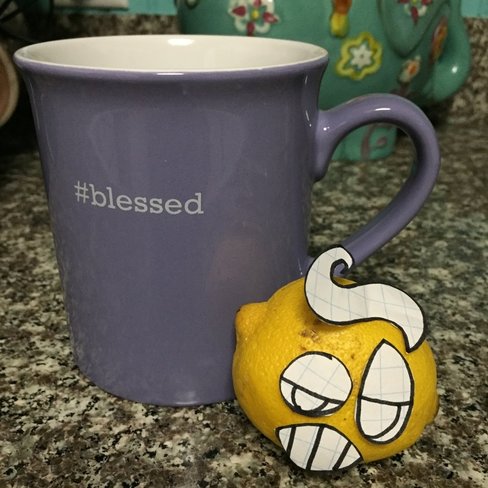 If you've been #blessed by good leaders, you have a responsibility to be a good leader If you've been #blessed by good leaders, you have a responsibility to be a good leader I didn’t start making any real money until I got into remediation work, does that mean that my wife is a mold digger? Would anyone other than a property restoration professional think this was funny? How did you get into water damage mitigation and microbial growth (the four letter word – mold) remediation or bio hazard (crime scene) clean up? I answered job posting in the local newspaper, when that was still a thing, for carpet cleaning at a time when the job market was thin and I wanted any job that would 1) get me away from my current employment and 2) allow me some flexibility to go to night school. In my initial interview I expressed that I was studying for a degree in criminal justice and the owner of the local franchise restoration company told me, “You would be great for our mold division.” Not having any idea what that was, I replied, “Why yes. Yes I would.” I have had many people over the years ask, what is a mold remediation division? It may be difficult for many to imagine but there was a time when insurance companies were paying on mold claims and there was plenty of work. Our organization had a good section of the local market, something that many franchises are no longer allowed to do, and our team was knocking out projects. In my professional pursuits doors were not opening in the path that I anticipated heading down while doors were opening in this new profession that only months before I did not know even existed. Sometimes we can be slow to recognize the clear turns that our journey is taking, but thankfully I was able to see a real opportunity to grow thanks to good leadership and support from my family. I always tell new recruits – if you are honest, hard working and willing to learn, we can teach you to be productive in our industry (see article Hiring, 3 Character Keys). How do I know this? Because this is exactly what I brought to the table and was fortunate enough to have good leaders who were willing to teach me the skills necessary to succeed as well as provide opportunities for me to grow in the property restoration profession. Good leaders are a blessing to their organizations and their employees, if you are in leadership you have the privilege and the responsibility to keep those torches burning – whether you were provided with good examples by good leaders or if you had to carve your own path. |
AuthorThoughts on personal and professional development. Jon Isaacson, The Intentional Restorer, is a contractor, author, and host of The DYOJO Podcast. The goal of The DYOJO is to help growth-minded restoration professionals shorten their DANG learning curve for personal and professional development. You can watch The DYOJO Podcast on YouTube on Thursdays or listen on your favorite podcast platform.
Archives
March 2023
Categories
All
<script type="text/javascript" src="//downloads.mailchimp.com/js/signup-forms/popup/unique-methods/embed.js" data-dojo-config="usePlainJson: true, isDebug: false"></script><script type="text/javascript">window.dojoRequire(["mojo/signup-forms/Loader"], function(L) { L.start({"baseUrl":"mc.us5.list-manage.com","uuid":"b9016446bd3c6a9f0bd835d4e","lid":"83282ffb9e","uniqueMethods":true}) })</script>
|
Jon Isaacson |
Connect. Collaborate. Conquer.
© COPYRIGHT 2015. ALL RIGHTS RESERVED.
|




 RSS Feed
RSS Feed